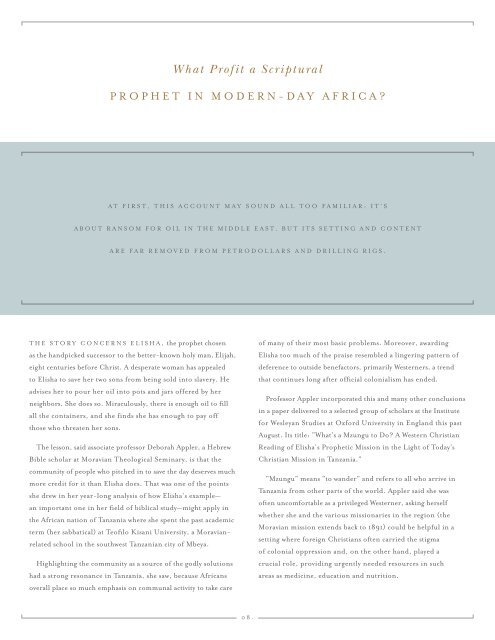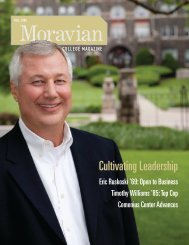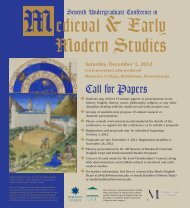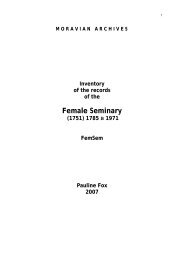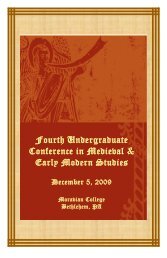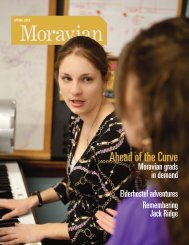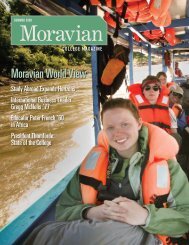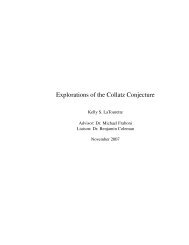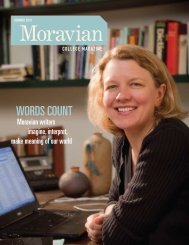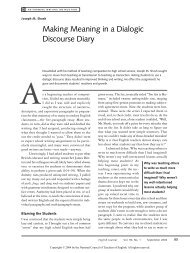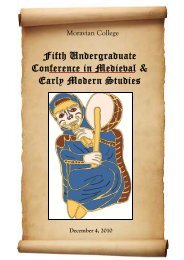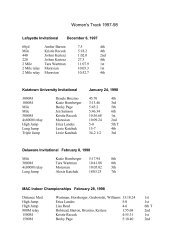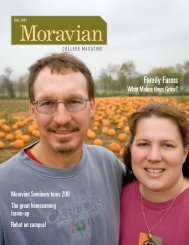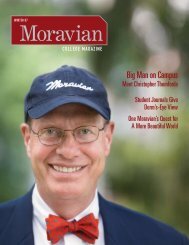Create successful ePaper yourself
Turn your PDF publications into a flip-book with our unique Google optimized e-Paper software.
The STorY ConCernS eLIShA, the prophet chosen<br />
as the handpicked successor to the better-known holy man, elijah,<br />
eight centuries before Christ. A desperate woman has appealed<br />
to elisha to save her two sons from being sold into slavery. he<br />
advises her to pour her oil into pots and jars offered by her<br />
neighbors. She does so. Miraculously, there is enough oil to fill<br />
all the containers, and she finds she has enough to pay off<br />
those who threaten her sons.<br />
The lesson, said associate professor deborah Appler, a hebrew<br />
bible scholar at Moravian Theological Seminary, is that the<br />
community of people who pitched in to save the day deserves much<br />
more credit for it than elisha does. That was one of the points<br />
she drew in her year-long analysis of how elisha’s example—<br />
an important one in her field of biblical study—might apply in<br />
the African nation of Tanzania where she spent the past academic<br />
term (her sabbatical) at Teofilo kisani University, a Moravianrelated<br />
school in the southwest Tanzanian city of Mbeya.<br />
highlighting the community as a source of the godly solutions<br />
had a strong resonance in Tanzania, she saw, because Africans<br />
overall place so much emphasis on communal activity to take care<br />
What Profit a Scriptural<br />
ProPheT In Modern-dAY AfrICA?<br />
AT fIrST, ThIS ACCoUnT MAY SoUnd ALL Too fAMILIAr: IT’S<br />
AboUT rAnSoM for oIL In The MIddLe eAST. bUT ITS SeTTIng And ConTenT<br />
Are fAr reMoved froM PeTrodoLLArS And drILLIng rIgS.<br />
08.<br />
of many of their most basic problems. Moreover, awarding<br />
elisha too much of the praise resembled a lingering pattern of<br />
deference to outside benefactors, primarily Westerners, a trend<br />
that continues long after official colonialism has ended.<br />
Professor Appler incorporated this and many other conclusions<br />
in a paper delivered to a selected group of scholars at the Institute<br />
for Wesleyan Studies at oxford University in england this past<br />
August. Its title: “What’s a Mzungu to do? A Western Christian<br />
reading of elisha’s Prophetic Mission in the Light of Today’s<br />
Christian Mission in Tanzania.”<br />
“Mzungu” means “to wander” and refers to all who arrive in<br />
Tanzania from other parts of the world. Appler said she was<br />
often uncomfortable as a privileged Westerner, asking herself<br />
whether she and the various missionaries in the region (the<br />
Moravian mission extends back to 1891) could be helpful in a<br />
setting where foreign Christians often carried the stigma<br />
of colonial oppression and, on the other hand, played a<br />
crucial role, providing urgently needed resources in such<br />
areas as medicine, education and nutrition.


